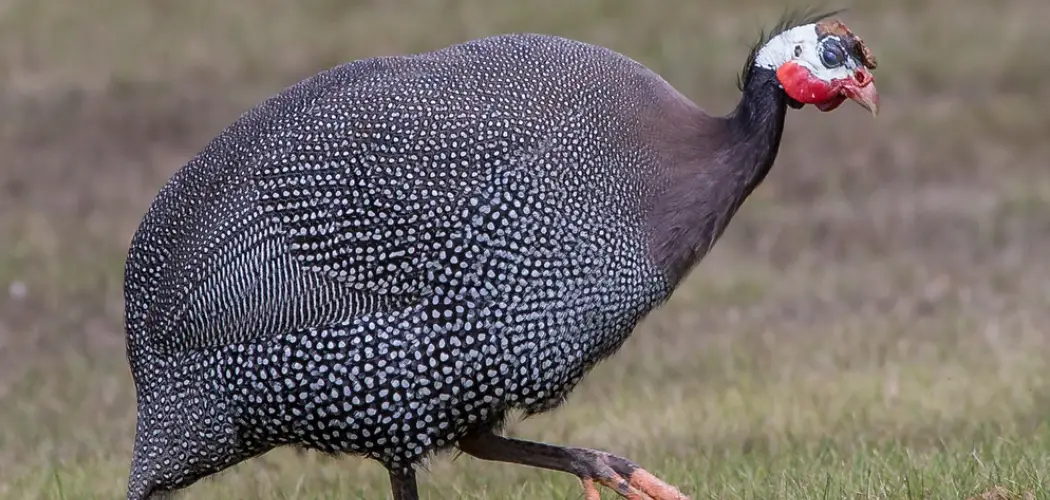Keeping guinea fowl can be an enriching experience for both hobbyists and farmers alike. These unique birds are known for their striking appearance, quirky personalities, and valuable contributions to pest control. Whether you’re interested in adding them to your backyard flock or incorporating them into your farmstead, understanding their needs and behaviors is crucial for their well-being and your success as a keeper.
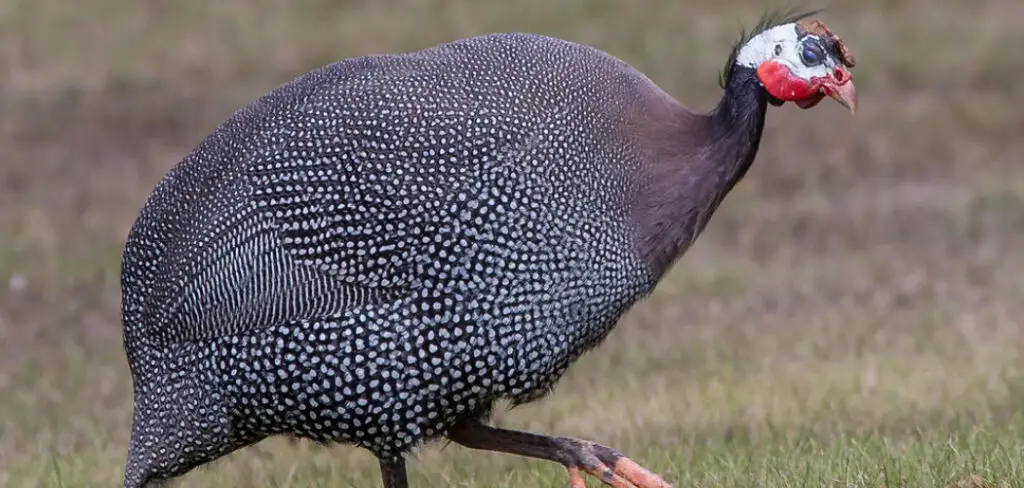
From providing appropriate housing and nutrition to managing their social dynamics and health care, there are various aspects to consider when embarking on the journey of guinea fowl husbandry. In this comprehensive guide, we’ll delve into the essentials of how to keep guinea fowl, offering practical tips, insights, and best practices to ensure a harmonious and thriving relationship with these fascinating birds.
Whether you’re a novice or seasoned keeper, mastering the art of caring for guinea fowl can lead to a rewarding and fulfilling experience in aviculture.
Importance of Proper Care and Housing for Guinea Fowl
Ensuring proper care and housing for guinea fowl is paramount to their health, happiness, and productivity. These birds require a safe, comfortable environment to thrive, protect themselves from predators, and manage weather extremes. Proper housing not only safeguards them from environmental threats but also prevents stress, which can lead to health issues and disruptive behaviors.
Adequate space is critical; guinea fowl are active and social creatures that need room to roam, forage, and engage in natural behaviors. Additionally, their housing should be well-ventilated, dry, and clean to minimize the risk of respiratory illnesses and parasites.
By prioritizing these aspects of their care, keepers can ensure their guinea fowl lead healthy, content lives while also benefiting from their natural pest control capabilities and vibrant presence on the farm or in the garden.
Understanding Guinea Fowl
To successfully keep guinea fowl, an understanding of their natural habits and behaviors is essential. Originating from Africa, these birds are hardy and adapt well to various environments, but they retain many of their wild instincts. One of the most distinctive characteristics of guinea fowl is their loud call, which makes them excellent watchdogs for farms and gardens. They are fiercely independent yet flock-oriented, often moving in groups to forage for food, which includes a diet rich in insects, seeds, and small invertebrates.

Guinea fowl have a unique social structure, and establishing a pecking order is a normal part of their integration into a new or existing flock. This process can sometimes involve squabbles and skirmishes, but with enough space and environmental enrichment, these can be minimized. Understanding these dynamics is crucial for anyone looking to introduce guinea fowl into their homestead.
Breeding guinea fowl also requires specific knowledge and attention. They have a natural instinct to nest and hide their eggs in tall grass or underbrush, which can make egg collection challenging. Offering designated nesting areas can help manage this behavior. Being seasonal layers, guinea hens are most productive in the warmer months, and their eggs, though smaller, are often considered a delicacy.
Overall, understanding the natural behaviors, dietary needs, and social dynamics of guinea fowl will arm keepers with the knowledge required to provide a conducive environment for these vibrant birds.
Species and Breeds of Guinea Fowl
In the world of guinea fowl, there is a rich variety of species and breeds, each with its own unique characteristics, appearances, and preferences. The most commonly kept species in backyard flocks and farms is the Helmeted Guinea Fowl (Numida meleagris), known for its hardiness, distinctive white-spotted feathers on a primarily dark grey background, and its helmet-like casque atop its head.
However, several other species and varieties offer a range of colors, sizes, and temperaments that might suit different keepers’ needs and preferences.
Among these, the Pearl Guinea Fowl is perhaps the most recognized, boasting the traditional polka-dotted plumage that many people associate with these birds. For those interested in more unusual colors, the Lavender, Royal Purple, and Slate varieties offer subtle yet striking alternatives. Each breed presents a unique palette, from the soft, blue-gray hues of the Lavender to the deep, rich purples of the Royal Purple.
For enthusiasts looking for something slightly different, the Vulturine Guinea Fowl, with its bright blue body and striking black and white stripes, and the Crested Guinea Fowl, known for its beautiful crest of feathers, offer captivating aesthetic alternatives.
When selecting a species or breed, it’s important to consider not just the visual appeal, but also the temperament, noise level, and suitability for the environment they’ll be living in. Some breeds may be more adapted to colder climates, while others might require more space to roam.
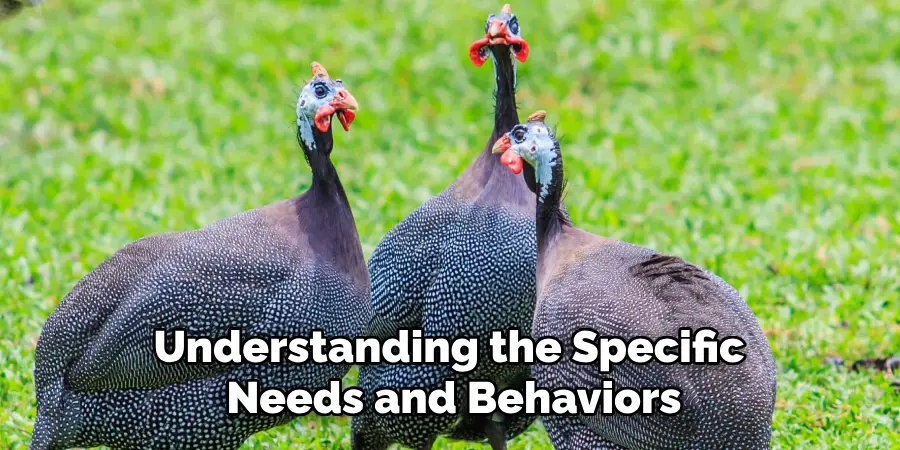
Understanding the specific needs and behaviors of each type of guinea fowl will ensure the best fit for both the birds and their keepers, leading to a more harmonious and enjoyable experience for all involved.
Guinea Fowl Varieties
Exploring the varieties of guinea fowl reveals a fascinating diversity beyond the most commonly known species. While the Helmeted Guinea Fowl remains a favorite for its adaptability and distinctive appearance, other varieties offer compelling alternatives for keepers with specific interests or needs.
The White Guinea Fowl is a striking variety, prized for its pure white feathers that offer a stark contrast to the traditional dark plumage of its relatives. This variety can add a visually stunning element to any flock, though it may require extra care in ensuring it remains clean and visible to protect against predators.
Pied Guinea Fowl exhibit a unique pattern of white and another color, often resulting from crossbreeding. The pied pattern can vary greatly, resulting in birds with a mix of spotted and solid color areas. This variety adds a dynamic visual element to the flock, with each bird displaying a unique plumage pattern.
The Chocolate Guinea Fowl brings a rich, dark brown coloration to the spectrum of available varieties. Less commonly seen, this variety offers a warmer, earthier tone that can blend beautifully into rural settings, providing a subtle yet distinct alternative to the more common grey and white varieties.
Jumbo Guinea Fowl are recognized not for their color, but for their size. Bred for increased body mass, these birds offer more meat and may lay larger eggs, making them an attractive option for those raising guinea fowl for culinary purposes. However, their larger size may require adjustments in housing and nutrition to accommodate their increased needs.
Each of these varieties contributes to the rich tapestry of guinea fowl husbandry. Whether selected for aesthetic pleasure, specific environmental adaptabilities, or practical purposes, understanding the unique characteristics of each variety can greatly enhance the experience of keeping these intriguing birds.
Lifespan and General Care Requirements
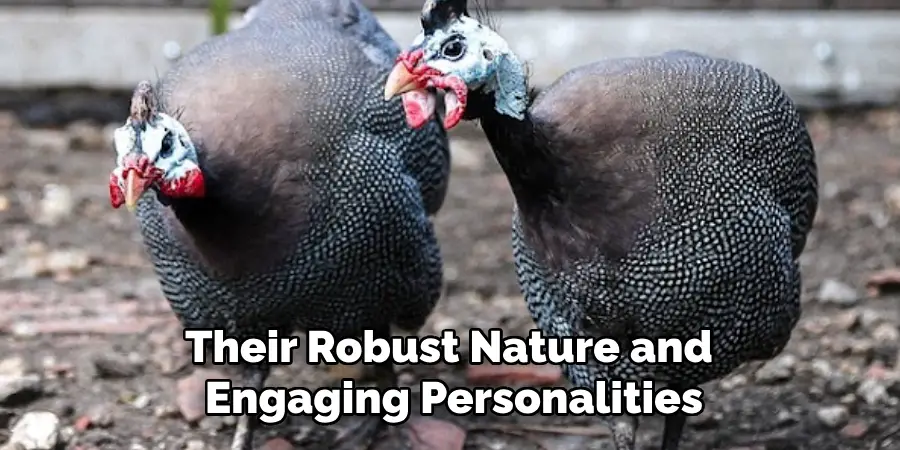
Guinea fowl, with their robust nature and engaging personalities, can be an excellent addition to any homestead or farm. Understanding their lifespan and general care requirements is crucial for ensuring a healthy and thriving flock.
On average, guinea fowl live between 10 to 15 years, though this can vary depending on factors such as environment, care, and genetics. To support a long and healthy life, they require a habitat that closely mimics their natural preferences — one that includes ample space for foraging, secure roosting spots, and protection from predators.
A balanced diet is essential for maintaining good health in guinea fowl. While these birds naturally forage for a significant portion of their food, including insects, seeds, and small invertebrates, supplementary feeding with a high-quality poultry feed helps ensure they receive all necessary nutrients.
Access to clean, fresh water at all times is also a must.
Shelter plays a critical role in the care of guinea fowl, especially during inclement weather and to protect against predators. While they are known for roosting in trees, providing a dry, draft-free coop will encourage them to roost in a safe place. The coop should be spacious enough to prevent overcrowding, with perches for roosting and nesting boxes for laying hens.
In terms of health management, regular observations for signs of illness or distress are important.
Guinea fowl are generally hardy, but like all poultry, they can be susceptible to certain parasites and diseases. Implementing preventative health measures, such as vaccinations and deworming, can assist in avoiding major health issues.
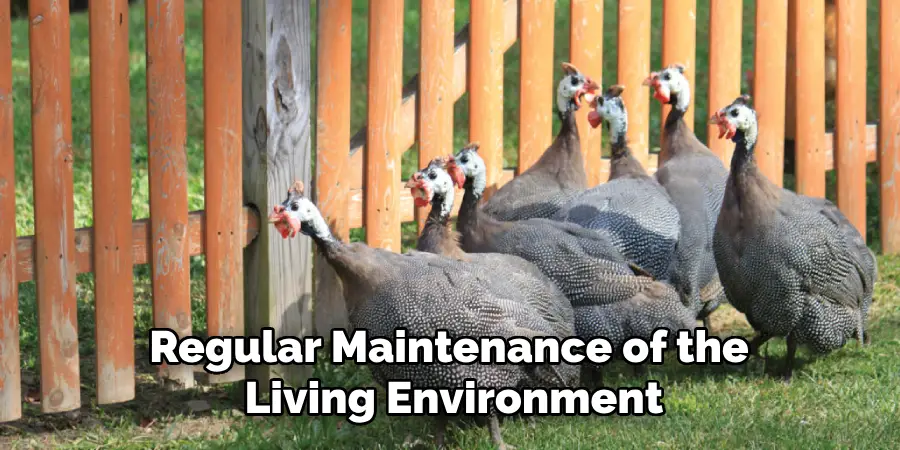
Regular maintenance of the living environment, including cleaning the coop and changing the bedding, will help keep the flock healthy and minimize the risk of disease. Additionally, guinea fowl benefit from environmental enrichment, such as areas to dust bathe and objects to peck at, which supports their natural behaviors and contributes to their overall well-being.
By meeting these general care requirements, keepers can enjoy the company of their guinea fowl for many years, benefiting from their unique personalities, pest control abilities, and the vibrant dynamics they bring to any flock or farm setting.
10 Methods How to Keep Guinea Fowl
1. Understanding Guinea Fowl Behavior and Needs:
Guinea fowl, being highly social birds, thrive in flocks. Understanding their natural behaviors, such as flock dynamics, foraging habits, and vocalizations, is crucial for providing them with a suitable environment. Guinea fowl have a strong instinct for exploring their surroundings and are excellent foragers, consuming insects, seeds, and vegetation. Providing ample space for roaming and opportunities for social interaction within the flock is paramount for their mental and physical well-being.
2. Providing Adequate Housing:
Guinea fowl require secure housing to protect them from predators and the elements. A sturdy coop or shelter with proper ventilation, insulation, and protection from drafts is essential.
The coop should be spacious enough to accommodate the flock comfortably, allowing for natural behaviors such as roosting and nesting. Additionally, providing nesting boxes filled with clean bedding material ensures a suitable environment for egg-laying hens.
3. Offering Proper Nutrition:
A balanced diet is essential for the health of guinea fowl. While they primarily forage for insects and vegetation, providing a high-quality commercial poultry feed formulated specifically for guinea fowl is recommended.
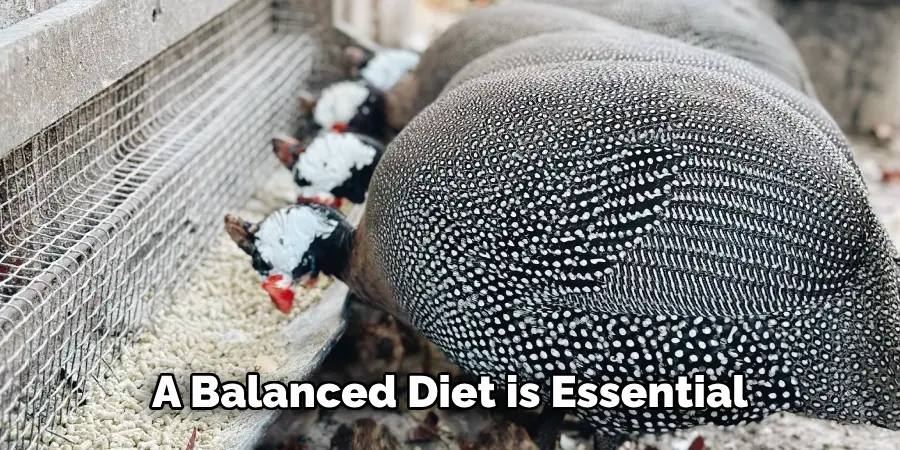
This feed should be supplemented with grains, fruits, and vegetables to meet their nutritional needs. Additionally, providing access to grit and fresh water at all times is vital for proper digestion and hydration.
4. Implementing Effective Predator Control Measures:
Guinea fowl are vulnerable to predation from various predators, including foxes, raccoons, dogs, and birds of prey. Implementing effective predator control measures is crucial for ensuring the safety of the flock. This may include installing sturdy fencing, using motion-activated lights or sound deterrents, and predator-proofing the coop by reinforcing doors and windows. Regular patrols and inspections of the perimeter can help detect and address potential security breaches promptly.
5. Providing Enrichment and Mental Stimulation:
Guinea fowl are intelligent birds that thrive on mental stimulation and enrichment. Providing a variety of toys, perches, and environmental stimuli encourages natural behaviors and prevents boredom-related issues such as feather picking and aggression.
Scatter feeding or hiding treats around the enclosure encourages foraging behavior and keeps the flock mentally engaged. Rotating enrichment activities regularly prevents habituation and ensures continued engagement.
6. Monitoring Health and Wellness:
Regular health checks are essential for detecting and addressing any potential health issues early on. Monitoring the flock for signs of illness or injury, such as lethargy, abnormal droppings, respiratory symptoms, or changes in behavior, is crucial for maintaining their overall well-being. Establishing a relationship with a knowledgeable avian veterinarian and scheduling routine check-ups can help ensure the health and longevity of your guinea fowl.
7. Managing Breeding and Reproduction:
If breeding guinea fowl, careful management of the breeding process is essential for ensuring the health and vitality of the offspring. Providing suitable nesting sites with clean bedding material, monitoring egg production, and ensuring optimal incubation conditions are key aspects of successful breeding management.

Additionally, providing brooding facilities and proper care for the chicks after hatching is essential for their survival and growth.
8. Implementing Sustainable Practices:
Guinea fowl, like all livestock, have an environmental impact. Implementing sustainable practices on your farm or homestead can help minimize this impact and promote long-term environmental health. This may include rotational grazing to prevent overgrazing, composting manure to enrich soil fertility, and conserving water through rainwater harvesting or efficient irrigation systems. By adopting sustainable practices, you can reduce your carbon footprint and contribute to a healthier planet.
9. Building Strong Relationships:
Developing strong relationships with your guinea fowl through gentle handling and positive reinforcement is key to fostering trust and mutual respect. Spending time interacting with the flock daily, offering treats, and speaking to them in a calm and reassuring manner helps build a bond based on trust and familiarity. Guinea fowl are naturally wary of humans, so patience and consistency are essential when building these relationships.
10. Continuing Education and Learning:
Keeping guinea fowl successfully is an ongoing learning process. Staying informed about the latest research, best practices, and advancements in poultry husbandry can help you provide the best possible care for your flock.
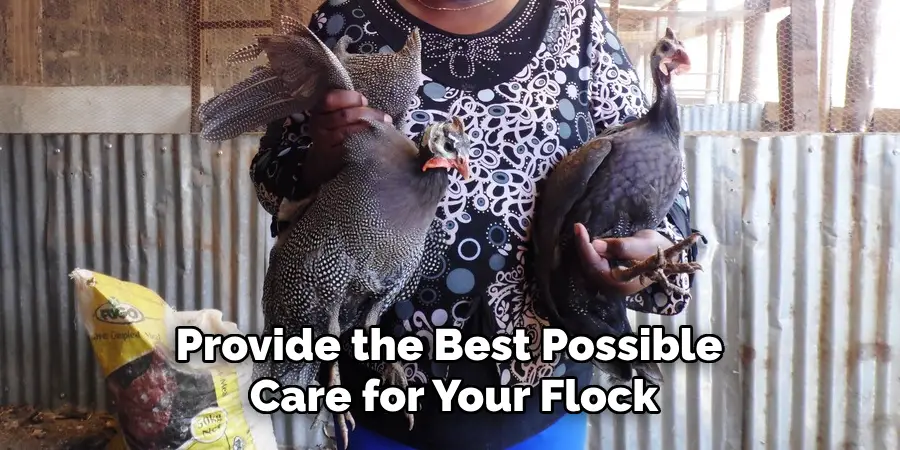
Attending workshops, seminars, and conferences, as well as networking with other guinea fowl enthusiasts, can provide valuable insights and resources for improving your husbandry practices. By remaining curious and open to new ideas, you can continually enhance your knowledge and skills as a guinea fowl keeper.
Things to Consider When Expanding Your Flock
Expanding your guinea fowl flock requires careful planning and consideration to ensure the well-being of both the existing and incoming birds. Here are key factors to consider:
- Space Requirements: Ensure you have ample space to accommodate additional birds without overcrowding. Adequate space is crucial for preventing stress, aggression, and disease spread among the flock.
- Quarantine Protocols: Implementing a quarantine period for new arrivals is essential to prevent the introduction of diseases to your existing flock. A quarantine area separate from your main enclosure allows for health monitoring of new birds before integration.
- Compatibility and Pecking Order: Understanding the social dynamics of guinea fowl is important when introducing new members. Introduce new birds gradually to allow time for social hierarchies to adjust and reduce potential conflicts.
- Genetic Diversity: When selecting new birds, consider their genetic background to maintain a healthy and diverse gene pool within your flock. This can help prevent inbreeding and foster resilience against genetic diseases.
- Nutritional Needs: Expanding your flock may require adjustments to your feeding strategy to meet the increased nutritional demands. Ensure that your feed supply and feeding areas are adequate to prevent competition and ensure all birds have access to nutrition.
- Predator Management: With more birds, predator attraction may increase. Assess and reinforce your predator defenses to protect the expanded flock adequately.
- Regulatory Considerations: Be aware of any local ordinances, zoning laws, or health regulations that may apply when increasing your flock size. Compliance with these regulations is important for legal and community acceptance.
Conclusion
In conclusion, keeping guinea fowl can be a fulfilling venture for those seeking an alternative to traditional poultry or looking to enhance their farming practices. By understanding their unique behaviors, providing proper housing, nutrition, and care, enthusiasts can create a thriving environment for these captivating birds.
Whether they’re serving as vigilant guardians of your property, charming additions to your backyard, or valuable contributors to pest control on your farm, guinea fowl offer a host of benefits to their keepers. Thanks for reading, and we hope this has given you some inspiration on how to keep guinea fowl!
About
Outdoor Fixes is a distinguished figure in the world of Diy design, with a decade of expertise creating innovative and sustainable Diy solutions.
His professional focus lies in merging traditional craftsmanship with modern manufacturing techniques,
fostering designs that are both practical and environmentally conscious. As the author of diy,
outdoorfixes delves into the art and science of outdoorfixes-making, inspiring artisans and industry professionals alike.
Education RMIT University
(Melbourne, Australia) Associate Degree in Design (Outdoor Fixes) Focus on sustainable design, industry-driven projects,
and practical craftsmanship. Gained hands-on experience with traditional and digital manufacturing tools, such as CAD and CNC software.
Nottingham Trent University
(United Kingdom) Bachelor’s in outdoorfixes.com and Product Design (Honors) Specialized in product design with a focus on blending creativity with production
techniques. Participated in industry projects, working with companies like John Lewis and Vitsoe to gain real-world insights.
Publications and Impact
In diy, Outdoor Fixes his insights on indoor design processes, materials, and strategies for efficient production.
His writing bridges the gap between artisan knowledge and modern industry needs, making it a must-read for both budding designers and seasoned professionals.

